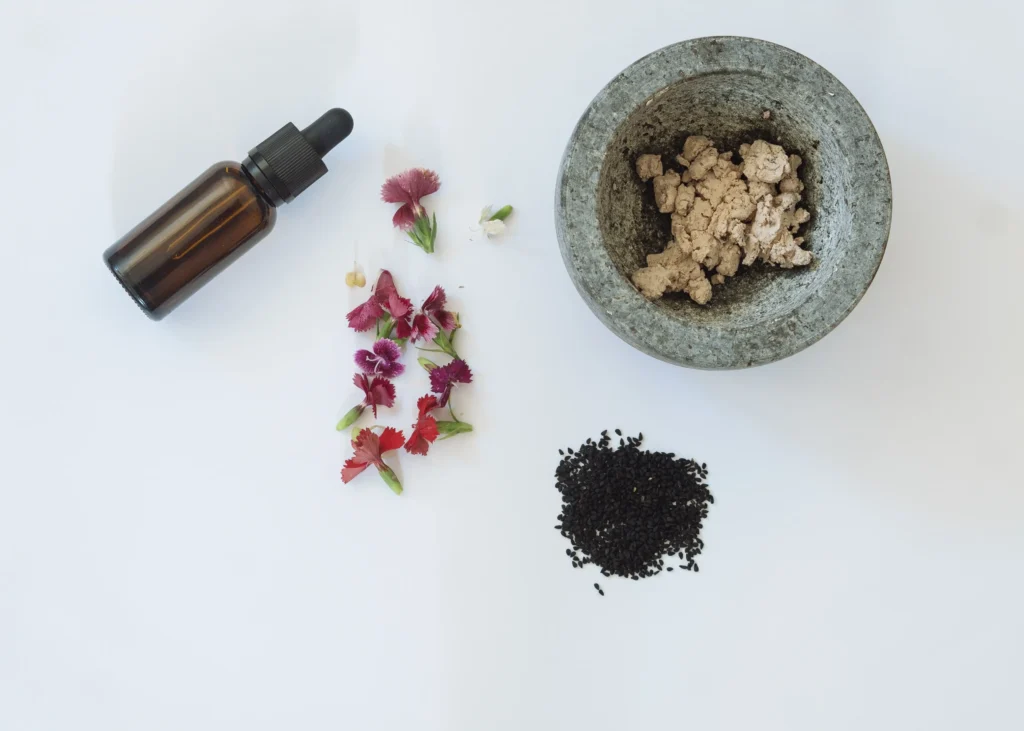Taking care of our skin is essential to ensure that it ages well. Although genetics play a role, our daily habits and environment can significantly affect the health and appearance of our skin. In fact, studies suggest that up to 90% of the aging process is due to how we care for our skin. Unfortunately, there are common daily habits that can harm our skin and lead to serious skin conditions over time. Here are seven of them:
Trying Too Many Skincare Products
Using too many skincare products can be harmful to your skin in the long run. When you switch between multiple products, your skin may not be able to adjust properly, leading to irritation, dryness, and breakouts. Using too many products that contain new preservatives and ingredients can also contribute to acne breakouts and other skin problems.
For acne sufferers, excessive use of acne products without rest periods can cause further issues such as dryness, redness, and inflammation. This can worsen the appearance of acne and prevent it from healing properly. It is important to have a skincare routine that consists of one or two compatible products that suit your skin type. Give the products enough time to work and create the desired effect.
Using too many products can also be a waste of money, as most products are formulated to work together with other products in the same range. If you use multiple products that are not meant to be used together, you may not see the desired results. Therefore, it is best to stick to a simple skincare routine that includes a cleanser, moisturizer, and sunscreen.
Using Facial Hair Remover Products Improperly
Using facial hair removal products improperly can cause irritation, redness, and even acne breakouts. One common mistake is using comedogenic products, such as those containing coconut oil, palm oil, or wheat germ, which can clog pores and cause breakouts. Aggressive facial razors or razors used too often can also contribute to skin irritation and inflammation.
To avoid these issues, it’s important to use non-toxic, non-comedogenic facial hair removal products that are gentle on the skin. Additionally, it’s important to properly cleanse the skin before and after hair removal to prevent any bacteria from entering the pores. This can be done with a gentle, non-comedogenic cleanser and lukewarm water.
It’s also important to avoid touching too much after hair removal, as this can cause further irritation. Applying a soothing, non-comedogenic moisturizer after hair removal can help to calm the skin and prevent irritation and inflammation.

Makeup Remover
Makeup is an essential part of many people’s daily routine, but removing it at the end of the day is just as important as applying it. However, using the wrong makeup remover can lead to serious skin issues. Many makeup removers contain harsh chemicals, including alcohol, sulfates, phthalates, parabens, and fragrance, that can irritate the skin, cause redness, inflammation, and acne breakouts. These chemicals can clog pores and prevent the skin from breathing properly.
It’s important to be mindful of the ingredients in your makeup remover and choose a product that is free of harmful chemicals. Opt for natural and non-toxic makeup removers that will not only clean your skin but also nourish and protect it. Look for makeup removers that contain ingredients like chamomile, aloe vera, and coconut oil, which are gentle and effective at removing makeup without causing irritation.
If you have sensitive skin or are prone to acne breakouts, it’s important to choose a daily moisturizer that won’t clog your pores or cause further irritation. You should also wash your face thoroughly after removing your makeup to ensure that no traces of makeup or makeup remover are left. This will help prevent breakouts and promote healthy, clear epidermis.
Eating Unhealthy Food
Eating processed food is not only detrimental to our overall health but can also negatively impact our skincare. Diets high in processed foods, which often contain high levels of sugar, refined carbohydrates, and unhealthy fats, can lead to increased inflammation in the body. This can trigger the production of enzymes that break down collagen and elastin, the proteins that keep our cuticles firm and supple, leading to premature aging and wrinkles.
Processed foods also have a high glycemic index, meaning they cause a rapid spike in blood sugar levels. This can lead to a process called glycation, where sugar molecules bind to collagen and elastin, damaging these proteins and leading to a loss of skin elasticity and firmness. Glycation can also result in the formation of advanced glycation end products (AGEs) which can cause inflammation, leading to a range of skin problems, including acne, rosacea, and psoriasis.
To protect our skin and overall health, we should aim to limit our intake of processed foods and instead focus on consuming a diet rich in whole foods, including fruits, vegetables, whole grains, lean protein, and healthy fats. These foods contain essential nutrients, vitamins, and antioxidants that support healthy skincare and help to prevent the negative effects of inflammation and glycation. Drinking plenty of water and staying hydrated is also essential for healthy skincare as it helps to keep the skin plump and supple.
Sleeping on your Stomach
Sleeping on your stomach is a common position for many people, but it can lead to skin problems. When you sleep on your stomach, your face is in close contact with your pillow, which can absorb dust, dirt, and oil. This can cause clogged pores and acne breakouts, especially if you have oily or acne-prone skin. Additionally, our face produces saliva when we sleep, which can further contribute to clogged pores and surface friction that can lead to irritation and breakouts.
To avoid these issues, it’s best to sleep on your back, if possible. This position keeps your face off of your pillow and reduces the contact between your skin and the pillowcase. If you have trouble sleeping on your back, you can try using a silk pillowcase, which can help reduce friction and prevent wrinkles. Additionally, you should make sure to wash your pillowcase regularly to remove any buildup of dirt and oil. By taking these steps, you can help clear and healthy skincare while you sleep.
Excessive Scrubbing
Scrubbing your face with a washcloth too much can be harmful to your skin. Over-exfoliating can lead to the removal of natural oils on your skin and cause dryness, redness, and irritation. Exfoliating more than once or twice a week can also lead to inflammation and damage to your skin’s protective barrier, which can increase the risk of skin infections and acne breakouts.
To prevent damaging, it is recommended to use a gentle, non-abrasive cleanser that is suitable for your skin type. Avoid using harsh scrubs or washcloths that can cause irritation. If you prefer to use a washcloth, choose a soft, clean cloth and use it gently on your skin. You should also avoid using hot water as it can leave it dry and vulnerable to damage.
It’s important to pay attention to your skin’s response to exfoliation and adjust your routine as necessary. If your skin is sensitive, you may need to exfoliate less frequently or use a gentler method of exfoliation, such as a chemical exfoliant or a konjac sponge. By being mindful of how you treat your skin, you can help keep it healthy, vibrant, and youthful-looking.

Washing with Extreme Hot or Cold Water
Washing your face with water that’s too hot or cold can have a negative impact on your skin. Water temperature affects your skin’s natural oils and moisture levels. If the water is too hot, it can strip the skin of its natural oils, leaving it dry and dehydrated. On the other hand, cold water can constrict blood vessels, reducing circulation, and leading to dull-looking skin.
To prevent damage to your skin, it is best to use lukewarm water when washing your face. Lukewarm water can help remove dirt and oil without damaging the skin’s natural barrier. Water with a temperature range of 98°F to 108°F (36.5°C to 40.5°C) is optimal for effective cleansing without causing damage.
Additionally, be gentle when washing your face with water. Avoid rubbing or scrubbing too hard as it can damage the skin and cause irritation. Pat your skin dry with a soft towel, and avoid rubbing or tugging, which can cause wrinkles and fine lines.
In summary, taking care of our skin through daily habits and avoiding harmful behaviors can significantly affect our skin’s health and appearance. By following these tips, you can help your skin age gracefully and maintain a healthy complexion.